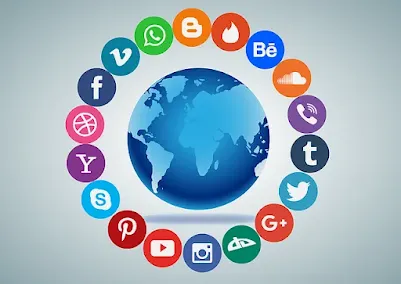Understanding the Dynamics
Social media, a realm that seamlessly intertwines with the fabric of modern existence, exerts profound influence on the lives of students. In this digital age, its impact extends far beyond mere connectivity, permeating every facet of academic, social, and personal spheres. Students' lives have become intricately woven with the threads of platforms like Facebook, Instagram, Twitter, and TikTok, shaping behaviors, perceptions, and interactions in unprecedented ways.
Academic Performance & Distraction
Social media has both positive and negative goods on education. On the other hand, it can also be a useful tool for carrying information, coordinating systems, and sharing in academic conversations. still, inordinate use or abuse of social media can lead to distraction, dropped attention, and bloodied literacy.
One of the ways the media affects seminaries is through influence. scholars may find themselves wasting precious study time by spending too important time browsing through documents, watching pictures, or drooling with musketeers. This can lead to detainments and difficulty fastening on academic tasks.
Another effect is on sleep. Using social media late at night can disrupt sleep, beget fatigue, and make it delicate to concentrate in class or lecture. Also, social media can beget stress and anxiety. Comparing the success or life of others as portrayed on social media platforms can have a negative impact on tone- regard and internal health, directly affecting education. But social media isn't that bad. It facilitates collaboration between scholars, allowing them to partake coffers, bandy literacy, and work on remote study brigades. also, some literacy and coffers available on social media can prop literacy and support traditional tutoring.
Eventually, the impact of social media on education depends on how it's used. Setting boundaries, managing time effectively, and using social media as a literacy tool rather than a constant distraction can help minimize the negative impact on literacy.
Social Interaction & Mental Well-being
One cannot overlook the profound impact of social media on students' social interactions and mental well-being. On one hand, these platforms provide an avenue for connection, fostering friendships and networks transcending geographical boundaries. However, the pervasive nature of social media also exposes students to cyberbullying, unrealistic standards of beauty, and societal pressures, exacerbating feelings of inadequacy, anxiety, and depression. The curated online personas often engender a skewed perception of reality, fostering a sense of isolation and undermining self-esteem among students.
Influence on Behavior & Lifestyle
Social media's omnipresence significantly molds students' behavior and lifestyle choices. The relentless barrage of curated content, influencer marketing, and peer-driven trends profoundly impacts students' preferences, opinions, and purchasing behaviors. The pursuit of likes, shares, and validation often leads to a desire for perfection, perpetuating a culture of comparison and fostering materialistic tendencies among students. Moreover, the constant exposure to idealized lifestyles and unattainable standards can skew perceptions of self-worth and happiness, leading to detrimental consequences on their overall well-being.
Coping Mechanisms & Digital Literacy
As the influence of social media continues to burgeon, it becomes imperative for students to develop robust coping mechanisms and cultivate digital literacy. Empowering students with the skills to critically evaluate online content, discern between authentic information and misinformation, and foster a healthy balance between digital engagement and real-life interactions is pivotal. Educators, parents, and policymakers play a pivotal role in imparting digital citizenship skills, nurturing a generation of responsible and discerning individuals adept at navigating the digital landscape.
Conclusion
In conclusion, the impacts of social media on students' lives are multifaceted, permeating various aspects of their academic, social, and personal spheres. While these platforms offer unprecedented connectivity and access to information, their pervasive influence also poses significant challenges. Striking a balance between harnessing the benefits and mitigating the adverse effects necessitates a concerted effort from all stakeholders involved in nurturing the holistic development of students.








No comments:
Post a Comment